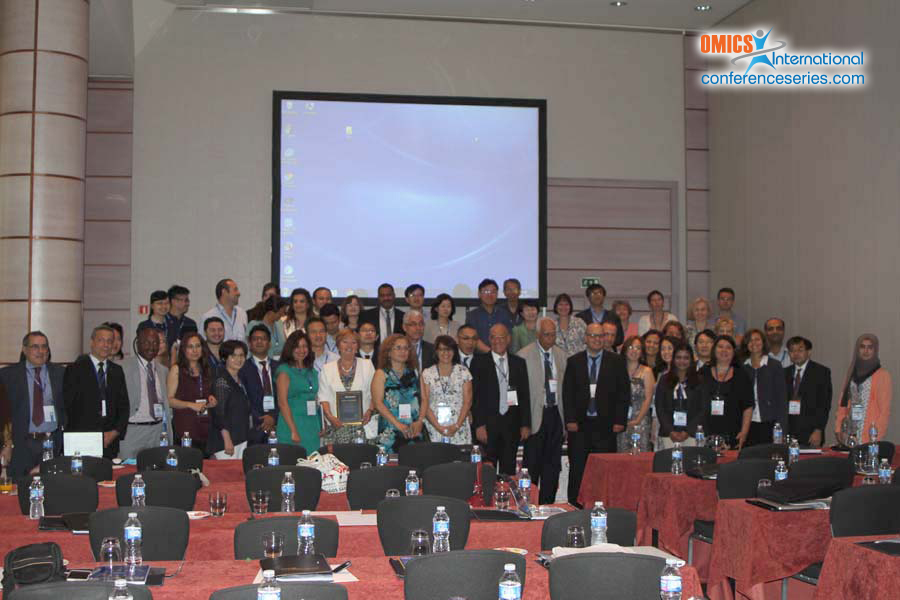
Patrizia Pagliara
Stanford University School of Medicine, USA
Title: Cyanobacteria are photosynthetic prokarotes
Biography
Biography: Patrizia Pagliara
Abstract
Cyanobacteria are photosynthetic prokaryotes actually considered one of the richest sources of bioactive compounds. They are able to produce a great variety of secondary metabolites and toxins with antibacterial, antiviral, antifungal, algicide or cytotoxic activities. Although the information about cyanobacterial bioactive compounds has been increasing over the last decades, less information are available for these species living in association with marine benthic organisms due to difficulties in their cultivation. So, the properties of a large number of cyanobacteria remained unexplored. During our study eight strains of cyanobacteria living in association with P. ficiformis were isolated, cultured under laboratory conditions and investigated for biological activities. Bioassays with human erythrocytes, Artemia salina nauplii, and Paracentrotus lividus gametes and embryos were performed. Cytotoxicity on mammalian cell lines was also investigated. A citolytic effect on human erythrocytes and a toxic activity against A. salina nauplii was observed. An antimitotic activity during sea urchin embryos development was evidenced and a disorganization of blastomeres with altered cell–cell contact was also induced. Furthermore, some of the isolated cyanobacterial strains, belonging to Leptolyngbya and Synechococcus genera, exerted a high cytotoxic activity against HeLa cells. Our data suggest to further investigate these cyanobacteria in order to better characterize their bioactive molecules and confirm that these microorganisms as good candidates for drug discovery.

